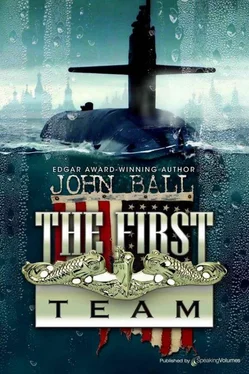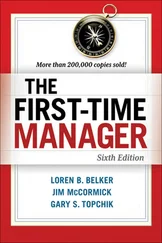Джон Болл - The First Team
Здесь есть возможность читать онлайн «Джон Болл - The First Team» весь текст электронной книги совершенно бесплатно (целиком полную версию без сокращений). В некоторых случаях можно слушать аудио, скачать через торрент в формате fb2 и присутствует краткое содержание. Год выпуска: 2013, Жанр: Триллер, на английском языке. Описание произведения, (предисловие) а так же отзывы посетителей доступны на портале библиотеки ЛибКат.
- Название:The First Team
- Автор:
- Жанр:
- Год:2013
- ISBN:нет данных
- Рейтинг книги:5 / 5. Голосов: 1
-
Избранное:Добавить в избранное
- Отзывы:
-
Ваша оценка:
- 100
- 1
- 2
- 3
- 4
- 5
The First Team: краткое содержание, описание и аннотация
Предлагаем к чтению аннотацию, описание, краткое содержание или предисловие (зависит от того, что написал сам автор книги «The First Team»). Если вы не нашли необходимую информацию о книге — напишите в комментариях, мы постараемся отыскать её.
Student protesters are being slaughtered in the Midwest.
The Jewish pogroms have begun.
You are now living in Soviet — occupied America!
One nuclear submarine and a handful of determined patriots against the combined might of Russia and Soviet-occupied America… The Most Explosive and Gripping “What If” Novel of Our Time!
First published January 1971
The First Team — читать онлайн бесплатно полную книгу (весь текст) целиком
Ниже представлен текст книги, разбитый по страницам. Система сохранения места последней прочитанной страницы, позволяет с удобством читать онлайн бесплатно книгу «The First Team», без необходимости каждый раз заново искать на чём Вы остановились. Поставьте закладку, и сможете в любой момент перейти на страницу, на которой закончили чтение.
Интервал:
Закладка:
One of the male students, larger and more muscular than the rest, made a sudden quick motion and broke the hold by which he was held. In a supreme burst of effort he sprinted for the corner of the building and momentary safety; the man who had been holding him laid his weapon across the elbow of his left arm, took aim, and fired. The blast of the gun reverberated in the air; the athlete jerked suddenly upright, reached out to claw at the air, and then fell forward. He lay inert and soundless where he fell.
The leader waved his arm toward the others. The screaming girl was silenced first; a bullet in her brain ended her final shriek in mid-spasm. The student next to her fell to his knees and lifted his clasped hands in supplication. He was the next to die; three quick shots in his chest cut him down.
A hoarse burst of screaming, this time from a masculine throat, pointed the next victim. The man behind him reversed his gun in his hand, then holding it by the barrel he smashed it down with vicious force onto the skull of his victim. Almost a full inch of the handgrip disappeared into the cranium with the sound of suddenly breaking ice.
A very young student, wide-eyed with horror, was frozen into immobility. Only his lips moved as he said, “Mother!” Then his staring eyes became empty as a sudden black hole in his forehead marked the end of his life.
The next of the young men stood still, speaking words of hope for a better life to come. “… Thy kingdom come; Thy will be done, on earth as it is in. The angry, violent bark of a gun ended his prayer; his body slumped very quietly to the ground.
The leader seized the blouse of Sally Bloom and in one powerful jerk ripped it from her body. Her slender torso was revealed, milky white and crossed by a small brassiere which proved that the breasts underneath were minimal. “Are you a Jew?” the man demanded.
If they were to be her last words, they were brave ones. “Yes, I am a Jew,” she declared. “God bless America!”
“No!!” The sudden outcry came from the young man who had tried to defend her. Forgetting the still frightful pain in his groin, he threw himself in front of her, offering her the protection of his own body.
The leader in the business suit produced his own gun from a concealed holster, then motioned that the student was to be moved aside. The youth’s arms were seized; he was forcefully pulled away and then turned around so that his horror-stricken eyes could witness the sight as the bullets fired in rapid succession tore the frail brassiere away, and hear the sound of the shots blasted back from the wall of the building.
In the terrible moment that followed he knew that all of the others were dead and that he himself would die within the next few seconds. He turned, faced the man he had at least struck with his fist, and said, “Pray to God, because you’re next.”
He did not feel the bullets that bit into him, only the first one that was deliberately pumped into his abdomen where it would hurt the worst. Somewhere within his expiring body he found the strength to endure it all and to face death unafraid.
So died Gary Fitzhugh, only son of Senator Solomon Fitzhugh, as his now vacant physical being collapsed to the ground next to the silent shell of the girl he had loved.
13
Like the slow fingers of winter feeling their way across the country in late October, the deepening effect of the defeat began to grip every part of the nation. The heavy transatlantic air traffic had changed pattern until some ten thousand of the enemy were being ferried westward each day. Not many other travelers booked the available flights; the United States had been stripped of its tourist appeal, and few Americans were in the mood for pleasure travel in Europe. Grim foreboding overshadowed the whole country as the realization sank home that the worst was not over and that still more difficult and dangerous times lay ahead.
During the original days of the occupation the orders had been to continue all of the normal functions of the government until further notice. As a result policemen and firemen still manned their posts, the courts sat and handed down decisions, and the postal service continued very much as before. They functioned, however, in a shadow world in which the will of the enemy was in absolute control and tightening its grip with each passing day.
As the fall approached the New York Philharmonic Symphony Orchestra announced the cancellation of its season. No reason was given; the bare statement was allowed to stand without amplification. There were reports that no conductor of stature could be found to assume responsibility for the orchestra, so many of the leading maestros being Jewish, and more accurate ones that the orchestra was having difficulties filling all of its chairs. Estimates of the Jewish makeup of the orchestra varied between fifty and ninety per cent, but whatever the true figure might be, there was little doubt in the world’s greatest Jewish city that the enemy was directly responsible.
For the first time since the President had announced the nation’s surrender, “in order that human life may be saved and we may be spared the horror of nuclear conflict,” there was real and genuine concern about the future. No longer was there a general trust that something would be worked out through diplomatic channels; now there was no hope ahead and the total, conscienceless takeover by the enemy emerged from a projected picture on a movie screen to a living, brutal, three-dimensional reality.
Although the normal means of national communication were under tight censorship and control, a changing attitude became visible throughout the whole country. Without fanfare or announcement, Marc Orberg recordings quietly disappeared from the market. Where it had once been impossible to walk through Times Square without hearing his voice projected at the passersby from at least a half dozen record stores, now there was no indication that he had ever appeared on the scene. The blow-up posters of him, life size and larger, were no longer to be found. A single Village shop, owned by a heteroclite young man tightly shrouded in his own ideas, displayed a window streamer that read: want orberg records? we got ’em.The banner had been up only two days when the store was broken into at night by persons unknown and the stock was badly vandalized. Less than two weeks after that unpublicized event no Orberg songs could be found on the market, performed by himself or anyone else. None were played on the air.
In the Negro areas of many of the major cities the common sign free wattlesbecame much less conspicuous. Negro Americans ranging from the affluent to those on welfare gradually shifted the focus of their interest from their own problems to those of the nation as a whole. Militants who had prophesied that the coming of the enemy would mean a new stature and dignity for the black man were faced with a reality that did not conform to their predictions. In sharp contrast the rural areas, particularly in the Midwest, were hard hit by the abrupt ending of the farm programs which had been in operation for many years. Price supports and many other government aids to agriculture were terminated without notice, and with the termination went a hard warning that no excuses would be accepted in lieu of full production.
Not much more than three months after the President’s capitulation there werq, more than a million of the enemy within the continental United States; one for every two hundred Americans. The long-held private lands in Hawaii, which had been controlled with great determination by the five pioneer families, were taken over, but none of the acreage was made available to the land-hungry residents who had long hoped to have the monopoly broken.
Читать дальшеИнтервал:
Закладка:
Похожие книги на «The First Team»
Представляем Вашему вниманию похожие книги на «The First Team» списком для выбора. Мы отобрали схожую по названию и смыслу литературу в надежде предоставить читателям больше вариантов отыскать новые, интересные, ещё непрочитанные произведения.
Обсуждение, отзывы о книге «The First Team» и просто собственные мнения читателей. Оставьте ваши комментарии, напишите, что Вы думаете о произведении, его смысле или главных героях. Укажите что конкретно понравилось, а что нет, и почему Вы так считаете.












